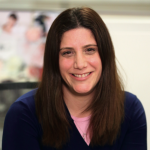Overcoming Addiction: The Courage to Succeed
Jewish Action spoke with Sharon Darack, North American director of the OU’s Israel Free Spirit: Birthright Israel, who has spent more than fifteen years in the field of drug and alcohol addiction in the Jewish community. Prior to joining the OU, Sharon was a program director for JACS (Jewish Alcoholics, Chemically Dependent Persons and Significant Others), under the auspices of The Jewish Board in New York. In 2018, Israel Free Spirit arranged sixty-four trips to Israel, including a trip for young people in recovery from addiction.
Jewish Action: What are some of the factors that lead to addiction?
Sharon Darack: From what I have seen, there are usually underlying reasons that cause people to abuse drugs or alcohol. Some are struggling with mental health issues. Some have undergone a traumatic experience such as physical abuse or the loss of a loved one. A person might say to himself: “I need to escape from my terrible feelings. I’m having a really bad day and I don’t know what else to do but drink, take drugs, or gamble.”
There are other entry points. Someone recovering from back surgery or serious dental work might be on painkillers and become dependent on them. There can be a genetic component as well; there are those who have a family history of addiction. And, of course, there are peer and social pressures.
It’s important to focus on the underlying issue first, and then the addiction. Identifying the reason for the addiction helps me recommend the best treatment and education plan.
At JACS, which was established in 1978 and was the first such program for the American Jewish community, I worked with Jews from all backgrounds—unaffiliated to Chassidic. We worked with the individual addict and with those impacted by addiction: spouses, children, parents, friends or colleagues. You name the addiction—drugs, alcohol, eating disorders, gambling, Internet—and we were there to help.
JA: Can you share a story of someone who really surprised you by making a dramatic recovery?
SD: There are so many stories. There were quite a few fourteen to sixteen-year-olds in a certain rehab whom I would visit so that they would have a Jewish visitor, and when they came out of treatment we stayed in contact. Some of them stayed connected through JACS programming and educational workshops, and a few even participated in the OU’s Birthright Israel trips for those in recovery. Thanks to Facebook, I can stay in touch with these amazing young people who are leading a life in recovery and are committed to being clean and sober.
It’s remarkable to watch someone struggling with addiction make a commitment to stop harming himself. Essentially, that person is saying, “I’m going to enter recovery, I’m going to embrace this journey, because my life is not functional!” Generally, those in recovery do not do it alone; they do it with the right support network and treatment plan, which enables them to find the courage and strength to turn their lives around. I have watched many, many young people enter recovery, start careers, become professionals or entrepreneurs, and eventually marry and build families.
One young man in particular comes to mind; I’ll call him Chaim. Chaim was a teen from an Orthodox home in Brooklyn who once sat in my office, high as a kite, begging for help. He had hit rock bottom and he did not know what to do. His friends called me the night before and I told them to have him come to my office the next day and I’d see what we could do. Chaim got into a Jewish-friendly rehab center in Pittsburgh, went through treatment and started his recovery journey. He did relapse a few times—but that’s part of the experience.
JA: Why is relapse/failing a part of the experience?
SD: Because it’s very hard. [According to the National Institute on Drug Abuse, the relapse rate for drug abuse is between 40 and 60 percent.] For some people it takes a few tries to make this life-changing commitment. Others start the process of recovery when they are not really ready for it. Often young people think: I’ve come this far now, I’m good. I’m healed. I think I can do it again. I can drink or I can do drugs in moderation; I can gamble in moderation. And the reality is they can’t.
You have to realize that you are allergic to these substances. It’s a disease, it’s a sickness. When you drink or do drugs, your life becomes unmanageable, and at a certain point it starts to fall apart.
When someone relapses, there is usually something bigger going on in their lives. So, to me, failure is not really about failure—it’s about a challenging time in someone’s life that has not been addressed, which causes this individual to behave in a certain unhealthy way. We need to ask: why did he or she relapse? What are the pressures that are causing this person to use drugs, alcohol, et cetera? Is it because he is struggling with anxiety, depression or other mental health issues that are not being addressed? Maybe he is just not ready to give up what he is abusing. Not addressing the underlying issue could be a setup for failure.
Part of the journey of recovery entails giving back. We say, “Give back what was graciously given to you.” Once Chaim celebrated his one-year sobriety anniversary, he started to volunteer and speak to students in Jewish schools, sharing his story. Chaim was there when we came up with the concept of creating a recovery Birthright trip with Israel Free Spirit, and he helped us with the planning.
JA: Tell me about the Birthright trips you run for those in recovery.
SD: I knew about Birthright, so I approached the OU and asked if the organization would run a trip for young Jewish addicts in recovery. The OU was the only Birthright trip operator that understood the benefit of offering such a trip. Through these trips, we have given a tremendous gift to these young people.
After I spent two years running the Israel trips—I hadn’t been able to participate in the trips myself because I still had young children at home—I thought to myself, I came up with this concept and I haven’t seen it in action? I must go! And so I finally went on my first Birthright Israel trip for recovering addicts, and I asked Chaim to staff it with me. And he did.
As time went on, Chaim continued his journey of recovery and he began returning to the Judaism he had abandoned. He met a Jewish girl, got engaged and invited me to his wedding.
It’s hard to go to such a wedding. I have to remain anonymous but I can’t help but cry after watching someone make this incredible, awe-inspiring journey. All of Chaim’s friends in recovery were there. We hugged one another as we cried; we all understood what Chaim had gone through. And we knew that we were witnessing a miracle—Hashem’s miracle—right there in front of our eyes. A year later, Chaim and his wife had a baby.
But there are tragedies too, devastating tragedies, and families coming apart. Because I’ve been involved in this field for so long, I see a lot of success, but there was a time when every other day there was a Jewish kid dying from an overdose.
Things are changing in the Orthodox Jewish community today. There was a time when shame and denial were rooted in our society.
JA: What do you think is the difference between those who make it and those who don’t?
SD: Those who struggle with recovery are suffering from the disease of addiction. They’re literally choleh. People have a tendency to blame. It’s easy to place the blame on the addict and think, “You’re such a bad person; you failed,” instead of acknowledging that he or she is sick and suffering. They’ve tried rehab so many times and have not yet worked out how to stop harming themselves. Often those who die by overdose did not intend to die.
On our Israel trips, when we go to Mount Herzl, we memorialize those who lost their battle to addiction. It reminds the group what they are fighting for.
JA: What do you say to someone who has relapsed?
SD: When someone has relapsed and is actively using drugs, for example, it’s usually a family member or friend who reaches out to me.
I ask the addict, “What do you want to achieve right now? What do you want to do to get through this challenging time?” My message is simple: I’m here for you when you need help. When you’re ready to go back on the journey of recovery, you tell me when and where and I’ll be there to help.
An addict can only be helped if he or she wants to be helped. It has to come from the person, not from his or her loved ones. It’s difficult for the family to accept that. But I tell them: if your child is over eighteen and doesn’t want help, you can’t force him to do something he doesn’t want to do. All you can do is be loving and nurturing.
I’m in touch with one young woman who is traveling and is afraid to come back to the States. She told me she started drinking again and her roommate doesn’t want to live in the apartment with her anymore because she’s not sober. We talked about it, but right now she sees nothing wrong with drinking. She’s suffered from a mental health condition for years, but took herself off her medication because she doesn’t like the way she feels on it. I told her, “I’m here for you when you need me.” She might reach out in a few months or in a year. Or maybe she won’t. And I put down the phone and I prayed that she doesn’t die. Because when someone starts drinking or taking drugs again, they don’t start at the beginning. They pick up from where they left off. But I know I’m powerless. Someone can only be helped if she wants to be helped.
JA: What do you tell parents who perceive themselves to be failures because their child is an addict?
SD: Parents of addicts often believe they have failed. I tell them, “You are not a failure. But don’t stop loving your child; no matter what, don’t give up on him. Tell him, ‘I’m here for you, I love you, I care for you. When you want to get into recovery or you need help, I’m here to support you.’”
Some parents have challenging family dynamics and might need to say, “You can’t live under my roof like this, since there are other children in the house.”
You can’t be your child’s bank account. I advise parents to tell their child who is an addict: “I can’t continue to give you money because I don’t agree with the way you spend it; I can’t support what you’re doing. But if you’re hungry, come home; I’ll make you a meal or buy you some food.”
Some parents have experienced addiction and mental health issues themselves. In that case, the discussion is very different.
But in the majority of cases, where the parents do not suffer from addiction themselves, I tell them: “You never stop caring and you never stop hoping. There’s always a light at the end of the tunnel. Sometimes it’s a dark, sad light, but sometimes it’s a brilliant, bright light. And when your child begins recovery and starts living in a healthier way, it’s like he has been given a beautiful gift, a chance for a new life, and he is a different person.”
JA: Are societal expectations in the frum community unrealistic? Doesn’t it sometimes seem as if society is saying you can’t fail in any area?
SD: At one point I worked with an Orthodox couple who would not tell anyone in the community that their son was actively abusing drugs. Every time their son overdosed, he would pass out and vomit, and the father would somehow manage to get him down the stairs and into the car so he could drive him to the hospital. They didn’t want any of their neighbors to see an ambulance in front of their home, because they were afraid of what their community would say and that their teenage daughter would have a hard time finding a shidduch in the future.
Some people struggle with the concept that an addict is a sick person. That’s why it’s so important to educate, in order to de-stigmatize addiction and mental health issues. No one should feel embarrassed about seeing a psychiatrist or therapist to address a mental health issue.
On the contrary, a person who addresses his addiction or any other mental health issue should be viewed in a positive light. We need to take care of ourselves in all ways, which is what the halachah mandates. That includes taking care of our mental health. In the US, one in five people struggle with mental health issues; the Jewish community isn’t exempt.
However, on a positive note, things are changing in the Orthodox Jewish community today. There was a time when shame and denial were rooted in our society. Years ago I never heard a young frum person say, “I’m in recovery and my mom is so supportive.” Nowadays, I hear that quite often. That’s a huge difference from how things used to be.
JA: Have you seen someone overcome addiction and become a better person because of his experiences?
SD: Most people I meet who are in recovery believe they are in a better place than they were before. This is because they’ve gone on this remarkable journey, working on themselves either in a 12-Step program, a therapeutic support group, or individual therapy. Through these experiences, they have learned valuable skills—how to share their feelings and how to respond in a healthy way to challenging situations.
Those who choose to follow the 12-Step program find it to be a very honest and meaningful way of living. Some of the prayers are Christian-based, so in JACS we made them Jewish. Instead of saying a 12-Step prayer, we told the Jewish participants to recite the Shema instead. JACS did things like that with the help of many amazing rabbis who believed in what we did.
One of those rabbis is the well-known psychiatrist [and former Jewish Action contributor] Rabbi Dr. Abraham Twerski. He would often say that the 12-Step approach is similar to ideas found in the Torah. For example, the program asks you to admit that you are powerless over your addiction; to believe in a power greater than yourself; to make a fearless inventory of yourself; to make amends to others and to practice meditation and prayer. People who follow the 12-Step model have found it to be an invaluable part of their recovery journey.
To me, failure is not really about failure—it’s about a challenging time in someone’s life that has not been addressed, which causes this individual to behave in a certain unhealthy way.
Gratitude is a basic theme in recovery. We talk about what we are grateful for. Many times people will say, “I’m grateful that I’m alive today, that I was able to get up today, that I didn’t die of a drug overdose or from alcoholism or from gambling my life away and becoming broke. I’m now in a place where I can really take care of myself. I can be responsible and accountable.”
I teach those in recovery to reflect. When I get up every day, what am I grateful for? My family, a roof over my head, a place to sleep; I can get up every day and attempt to function. When you start with the basics, you build a solid foundation for having a positive attitude. To be resilient in life, you have to look at the positive.
I feel it’s also important to believe in a power greater than ourselves. In everything I do, I feel God around me, and my feelings of gratitude come from that. My favorite prayer is Modeh Ani. Every summer when I staff our Israel Free Spirit: Birthright Israel recovery trip, the participants on our bus, most of whom are not observant, go home knowing Modeh Ani by heart (we teach them to sing it in Hebrew and in English so they can understand it). On our ten-day trip, every morning we have forty-odd Americans, Israelis and madrichim singing this song on the bus. Why? Because it’s a song of gratitude. When I wake up in the morning, I open my eyes and say, Thank you Hashem for my neshamah and for giving me another day.
JA: How long of a journey is recovery?
SD: When someone is in recovery, he’s never totally healed, never fully recovered—he has to continuously work on himself. I’ve heard some people say they’re “in recovery for thirty years,” some for forty years. So it’s a long, incredible journey.



